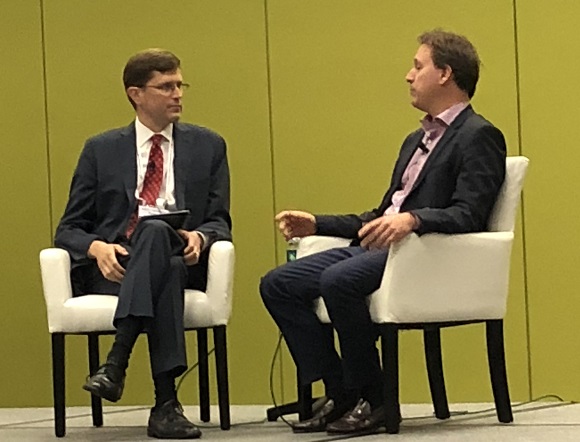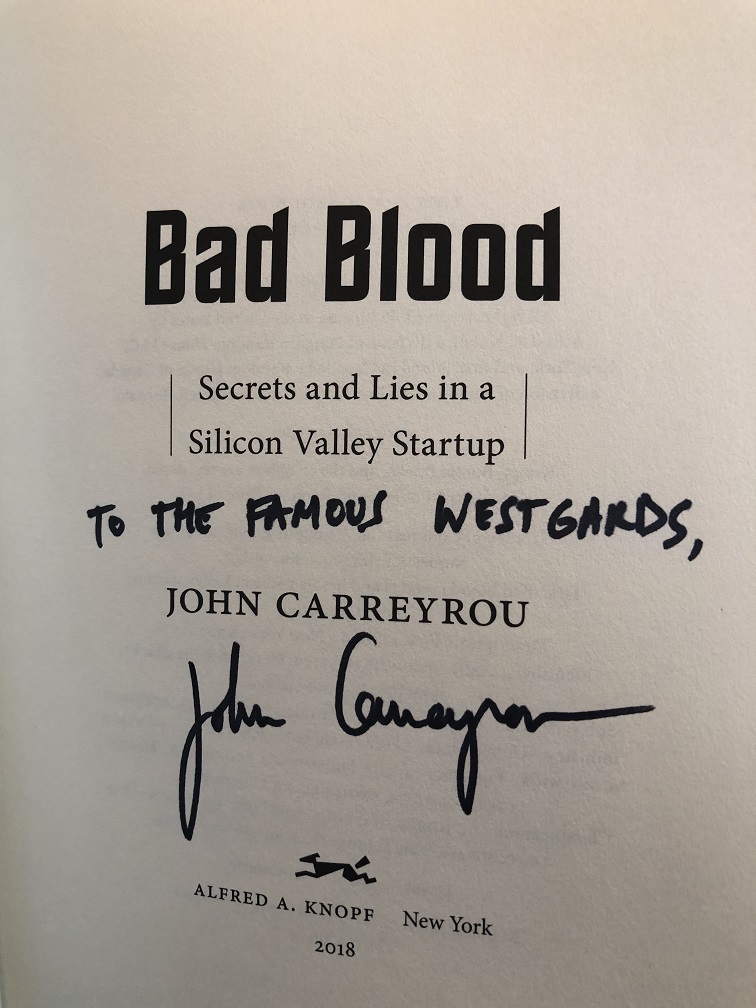Trends
Bad Blood for Theranos: A book and Conference Review
At the 2018 AACC/ASCLS confernce, John Carreyou was a keynote guest, discussing the investigative reporting he conducted that brought down the vaunted but fraudulant Theranos company. In 2016, Theranos' Elizabeth Holmes was the keynote guest. Have we really learned that much in 2 years?
Bad Blood at the AACC/ASCLS Convention - a book and conference review
Sten Westgard,MS
August 2018

It’s quite a turnabout. In 2016, AACC gave a grand stage to Elizabeth Holmes and Theranos at its annual convention. Board members and past presidents had joined the Theranos board and science advisory group. Theranos was given a platform on which to launch a new MiniLab, which was touted as the next evolution of laboratory testing. At a time when Theranos was under siege by questions about the quality of its laboratory testing, it appeared as if AACC was lending a stamp of guarded approval.

Two years later, in 2018, Theranos appears to be in its death throes, and John Carreyou, author of Bad Blood, appeared at the 2018 AACC convention to discuss the rise and fall of this once-heralded startup. Mr. Carreyou spent months investigating and reporting on the flaws and frauds of Theranos in the Wall Street Journal, which he chronicles and explains in further detail in the book Bad Blood. The secret history of Theranos was simple: the instruments never worked. The executives lied to investors and business partners. The Silicon Valley culture of “fake it until you make it” was being applied to medical testing with dangerous consequences.
Beyond the headlines and the reporting of Mr. Carreyou, there is a compelling tale of laboratory professionals struggling to try to do the right thing. While the executives demonstrated to compunction to telling larger and larger lies about Theranos, the laboratory workers struggled, worried, and many ultimately resigned and blew the whistle. Indeed, the secret story of Theranos may be the ethical code of its laboratory professionals were what prevented Theranos from perpetrating further harm upon patients. It’s a gratifying revelation, to see that when executives, marketers, salespersons, and public relations staff at Theranos were willing to lie, the lab had individuals with the courage to stay true to quality, to try and deliver safe results to their patients, and when that wasn’t happening, they were willing to resign and speak out.
Another key point of the Theranos story is the weaponization of the Laboratory-Developed Test. While the FDA insisted that Theranos needed to get official clearance of its medical devices and tests, Theranos attempted to shield itself behind the LDT loophole. Since they were only running the tests at a single facility, they could claim that it was only a laboratory-developed test, where the regulations are ambiguous. Theranos deliberately, actively misled inspectors and regulators, but once the inspectors decided to get tough, they came down hard on Theranos and its executives.
When Mr. Carreyou was asked why all the lies were told, what motivated the head of Theranos to continue the fraud, he invoked the concept of “noble cause corruption” – the tendency of people to rationalize their lies if they are being committed in what they believe is a noble cause. Elizabeth Holmes thought she was going to change how healthcare was delivered to the world, and she was willing to say anything in the pursuit of that goal.
Mr. Carreyou was asked a particularly awkward question by Dr. Diamandis, one of the early critics. It wasn’t so much a question as a damnation: Dr. Diamandis pointed out that critical articles https://www.ncbi.nlm.nih.gov/pubmed/26030792 about Theranos had been published in European journals, but the flagship Clinical Chemistry journal in the US never spoke out about Theranos, either for good or bad. The silence was palpable. The involvement of AACC leadership in even tacit support of Theranos remains a bruise to the reputation of the organization. Having Mr. Carreyou as a guest at the convention is a good start, but it will take more than a book signing to redeem the reputation of the organization.

We were very pleased to get a special autograph from this diligent reporter.